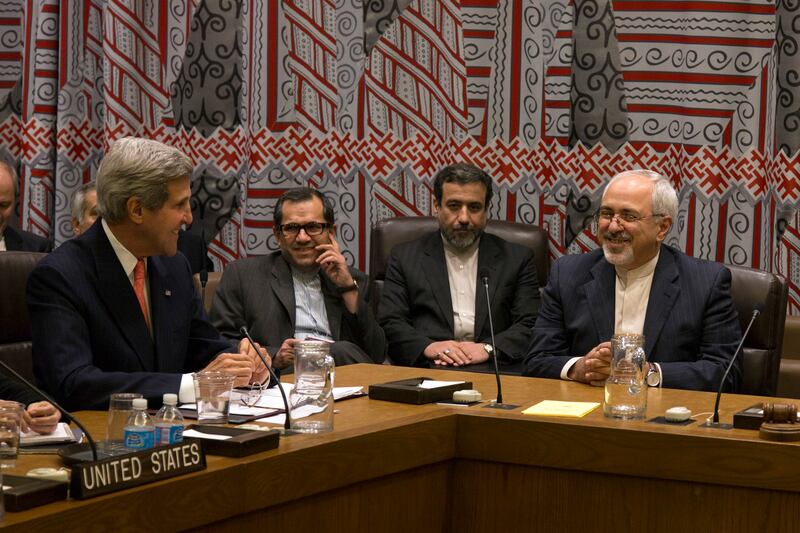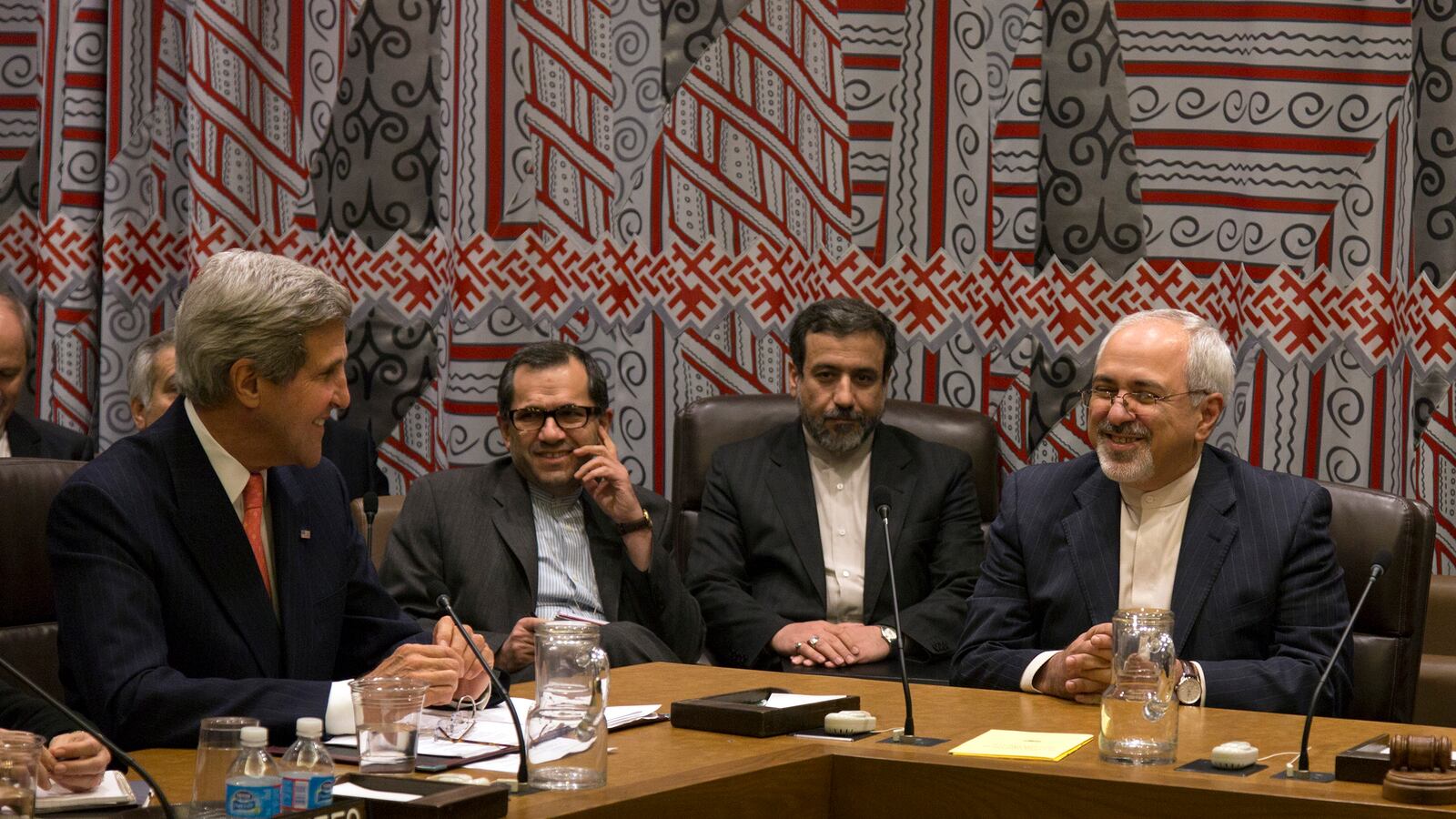What was the venerable Brillo-haired boxing promoter Don King doing at a meeting between think-tankers and the president of Iran? We didn’t know until the end.
There’d been a surprise announcement: a major breakthrough in nuclear negotiations with Iran over at the United Nations. A journalistic scrum suddenly surrounded the Iranian Foreign Minister Javad Zarif, who’d delivered that news. But King, the man who once brought us the “Thrilla in Manila” and the “Rumble in the Jungle,” jostled past the reporters to tell Zarif, “I want to promote ‘A Fight for Peace in the Middle East!’”This weird scene was not the most important moment, I suppose, in a day fraught with what seemed to be breakthroughs, but in its way it was the most emblematic. The United Nations General Assembly (or “Hell Week,” as some call it) suddenly has turned into a circus of diplomacy, a riot of expectations. A “fight for peace in the Middle East”? That’s what we’re watching right now.
First came news that the Security Council, frozen by Western posturing and a Russian veto through two years of horrific war in Syria, is about to sign off on a resolution requiring the Assad regime to give up its arsenal of chemical weapons. The deal between Washington and Moscow, hammered out a few days ago in Geneva, seems to be holding up in New York. A senior State Department official called it “a breakthrough won through hard-fought diplomacy.”
The resolution does not include the specific threat of military action—yet. But it left open that possibility if Syrian President Bashar al-Assad fails to act in good faith during the several stages of disarmament. A month ago, any such measures would have seemed inconceivable. Indeed, a month ago Assad was refusing to admit he had any chemical arsenal at all. But a month ago the horrific images of Syrian children killed by sarin gas, innocents swaddled in their shrouds, forced President Barack Obama to address the carnage. He threatened a punitive act of war. Despite a dithering Congress and a disdainful American public, the diplomatic doors opened. The Russians, of all people, came to Obama’s rescue with the chemical-weapons disarmament gambit. The deal at the Security Council on Thursday was a continuation of that process.
But the even bigger revelation of the day was the progress made on a diplomatic agreement to end the threat of Iran acquiring nuclear weapons. No, nothing is signed, sealed, or delivered. Far from it. But what had appeared a shallow charm offensive by recently elected Iranian President Hassan Rouhani suddenly looked like it had substance.

You’ll remember that both the Iranians and the Americans had led the press to expect a big diplo-moment on Tuesday, when Obama and Rouhani gave speeches before the General Assembly. They were both supposed to attend the same luncheon and perhaps do something world-shaking after more than 30 years of Iranian-American hostility like, for instance, shaking hands. But they didn’t. Rouhani was a no-show.
After that, Tehran and Washington buzzed with rumors that Iranian Supreme Leader Ali Khamenei had jerked Rouhani’s chain. The two are not exactly allies. In the very limited democratic process that exists inside Iran’s theocratic regime, Rouhani had Khamenei’s approval to run for election, but he wasn’t his pick to win. Now Rouhani kept repeating that he’d been elected in a landslide on a platform of moderation and with a mission to end the devastating economic sanctions imposed by the United Nations. The only way to do that would be with a deal to limit Iran’s nuclear ambitions in a way the West could accept. And that was something it seemed Khamenei could not abide.
Yet on Thursday, Foreign Minister Zarif forged ahead at a meeting with his counterparts from Germany, France, Britain, China, Russia, and the United States. Secretary of State Kerry sat right next to Zarif at the conference table. Both of them had big smiles on their faces. Then they went off to talk one-on-one. (Zarif’s English is flawless.)
It’s normal for diplomats at such meetings to have these sorts of conversations, Zarif told the meeting in the Hilton. But “we had more than a chat.” Indeed. The meeting itself was unprecedented in the 34 years since Iran’s revolution. And there was a lot to talk about. The United States is concerned about Iran’s role in Syria supporting the Assad regime, and its influence in Afghanistan, where it could create havoc as the United States is trying to withdraw. But all the chatting seemed to go well.
The breakthrough conversations about nuclear disarmament led to more relaxed interactions across the board. “I am optimistic,” Zarif told the Hilton meeting. “Now we have to match our words with actions.”
Another high-level encounter is due to take place in Geneva in mid-October. Don King probably won’t be there. Kerry and Zarif might. And the fight for peace in the Middle East will go on.






